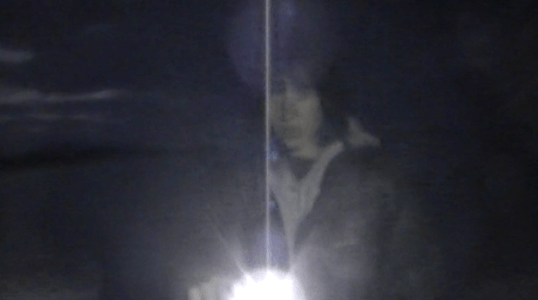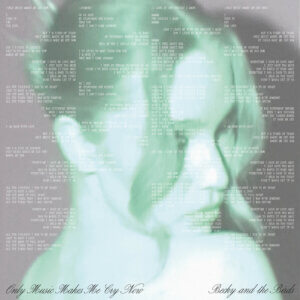Our Interview With Ariel Pink

Ariel Pink has spent the last decade working his way up from being a footnote in aughts lo-fi rock, to one of this decade’s most notorious, innovative, and unpredictable artists. Debuting on 4AD in 2010, every release he has made in his “studio” years has brought him closer to widespread acclaim, while simultaneously putting him in a position of media scrutiny. Last year Pink (born Ariel Rosenberg) reached a court settlement over the ownership of the name Haunted Graffiti (the name once used for Ariel’s fake-turned-real life band), which was spurred by former drummer Aaron Sperske. Since settlement, Ariel has ditched the Haunted Graffiti name to avoid any further complications, and his new record pom pom, will be his first released simply as Ariel Pink. It has always been a solo project,” he clarifies. “This record is the result of me doing whatever I wanted with whoever I wanted, whenever I wanted.”
Ironically, the new record has more players and collaborators than any previous effort by Pink, namely 70s production legend Kim Fowley, who brainstormed lyrical ideas for a handful of tracks on the record. The record itself is a double album stuffed with warped ballads, gothic groovers, and proggy freakouts. The beautiful sits comfortably next to the disjointedly ugly for what is arguably Pink’s most thrilling work to date.
The fact that the record coincides with a smattering of ill-received statements from the singer is unfortunate considering. He’s repeatedly unfazed by the critiquing of his character however. “The things I’m saying now, if I had said those things at the top of the 2000s, I wouldn’t have been seen as a renegade at all.” Among the things he has been called in the past few months: rude, sexist, misogynist, delusional, “indie rock’s most hated man,” and “the fucking worst.” These comments of course are in response to various unpopular remarks Pink has made over the past few months, which has ranged from taking shots at Madonna for her “narcissistic domination of the world,” to praising the Westboro Baptist Church for “being able to remind people that this [is] a country where you can say, ‘You’re going to go to hell,’ and you won’t go to jail.”
In our brief but engaging interview, Ariel describes the frustrations of his legal troubles, working with Kim Fowley, and his thoughts on the how-and-why of his public image in 2014.
Northern Transmissions: I just watched the PS22 thing with the kids singing “Jello-O” and “Picture Me Gone.” How did you end up doing that?
Ariel Pink: I literally walked in and they began singing – they had been well-rehearsed prior to my arriving.
NT: It was unrehearsed?
AP: I didn’t give them anything. I suspect someone at 4AD must have slipped them a copy of the record.
NT: Let’s talk about that record. There seems to be some confusion over whether or not this is your ‘solo album.’ Do you think you could clarify why this is a record that does not carry the Haunted Graffiti name?
AP: Yeah, that’s actually a perfect example of how these things get so confusing. That’s not what I mean at all. Every single record I’ve done has been a solo record and this one continues to be a solo record. The only difference is that this just doesn’t have the Haunted Graffiti moniker. So in a very literal sense, it is the first record credited solo to Ariel Pink, whereas the other solo records were credited to the project Ariel Pink’s Haunted Graffiti, which got always misunderstood as a sort of non-solo band venture kind of thing. Although it’s true I had a band – I mean so does Bruce Springsteen, and any number of artists, Alicia Keys, whatever – it doesn’t really matter. I’m not the only one on this record as I would have been on very early records where I was just alone. However, it has always been a solo project, and this has just been the first one credited to just Ariel Pink. But this one has more players than just about any other one.
NT: Yeah, I guess I’m just curious then to what differentiates it. Why is this Ariel Pink, but Mature Themes, Before Today, and several others are credited as Ariel Pink’s Haunted Graffiti?
AP: There is a perfection of the approach I suppose. I felt on this record much more in control of the record, and not responsible for keeping people in the loop — like certain bandmates. I didn’t feel any responsibility. I had grown to tolerate by way of diplomacy and try and make things work with other people. The situation had come to a head with the members of my band—we got sued by an ex-member [Aaron Sperske] and spent a year in legal proceedings.
NT: What was the legal battle over exactly?
AP: It was over ownership. Well, I really shouldn’t talk about it. It’s all settled. The point is this very issue about, ‘What’s the difference between’ Ariel and Haunted Graffiti, and Ariel Rosenberg, and Ariel Pink himself – this was key to the whole case. It had to be dissected and it was my feeling that there was a gratuitous misunderstanding of the terms that I was using. I almost could have made it more difficult for myself on the one hand but on the other hand, long ago I made a very big decision. I mean, if it wasn’t my project I wouldn’t have put my name right in the front. There was never a band, this was well before I ever played with anybody. I just invented this project called Ariel Pink’s Haunted Graffiti. There wasn’t a guy…as if there was somebody named Ariel Pink. It was just presented as Haunted Graffiti – that’s going to just look like a parody of a band project.
The punch line got lost and I started to tolerate the media and press sort of referring to me as Ariel Pink. And people started booking me as Ariel Pink, so I started telling my booking agent, “Hey, tell them to put Ariel Pink’s Haunted Graffiti on the marquee.” And there was a sense that when I had the band, and had the band players and we got signed to 4AD, that there was a sense that “Oh, well now that Ariel Pink’s Haunted Graffiti has its moniker back, it’s Ariel Pink with his Haunted Graffiti band.” And that Haunted Graffiti was a thing that was external to me.
And then somebody claimed ownership of it, and I took it for granted that they might do that. So I basically made myself open to that kind of misunderstanding that threatened to basically make me unable to quit my band on the one hand, and on the other hand. without a band [where I could] basically fire everybody, even though I wasn’t able to fire anybody because everybody was in it. So, basically this record is the result of me doing whatever I wanted with whoever I wanted, whenever I wanted.
NT: It sounds basically like it was a situation where the use of the name was an arbitrary thing that essentially just backfired when it was taken seriously.
AP: It ended up backfiring because I started to develop a rapport with the musicians involved to the point where there was a sense of leverage or power, and that there was a permanent position. Where they started to feel that it was more of a country, a democracy where I might be the president, they started their own autonomous power, and in the process inadvertently jeopardized the whole thing at my expense. So basically I had to pull out of it and remind everyone that this is a fascist dictatorship and that this is a police state and there’s nobody else on the planet that matters but me.
NT: Okay, so let’s talk about the results of that then. On pom pom, do you feel that there is a conceptual arc to it in how it unfolds? I ask because it seems to get zanier about halfway through the second side.
AP: It definitely has an arc. The sequence is important. But there’s no thematic arc if that’s what you mean. I just want to land from one song to the next in a workable way. Let the thing unfold in real time.
NT: I’ve read that you’re not a big fan of writing lyrics, but the words on pom pom seem to be a lot of times very intricate to the songs at hand. Were lyrics approached differently for this record?
AP: No, I mean there was different aspects to it. I mean the songs I did with Kim [Fowley], he just sort of went off the top of his head and dreamed up these lyrics spontaneously and then recorded them. And I went back to my cave and this was just in one evening when I went over there, and he just sort of went in a freestyle. I transcribed everything and gave a basic structure to it, and made a few alterations and edits and additions, and then was basically responsible for the results after that. So letting the lyrics effect the outcome from the top created a new framework for me to work on instrumentals. So it was like starting at the end and ending up in the front instead of vice versa. I mean there’s every manner of approaches that were taken which is why there’s so much variety on it.
NT: How did Kim Fowley get involved?
AP: He called me. We had made each other’s acquaintance about a year or two prior. I was going to have him in the video for “Nostradamus and Me.” We talked about that but things kind of unraveled with the court case and my life and then he sort of consulted me with that a little bit just to sort of give me some advice. And then I didn’t hear from him for a long time. But then a year later he came in and wanted to know the status of the lawsuit and once that was settled he was really eager to get cracking in the studio and wanted to produce a record. And then we had our session that night and then we discussed the idea that he was going to produce it but then we figured that wasn’t going to work out so then that was it.
NT: In regards to the reactions that some people in the press have had to things you’ve said lately, do you feel that this is something new, or has this been consistent throughout your career?
AP: No, things have changed in culture and in certain social networks in the way that politics that govern media now. The sort of court of public opinion now is this newfound empowered failsafe that people immerse themselves in. And it has a lobbying power that’s for real and actual. It actually does change policy. So what you have is basically a bunch of entitled brats that basically think that they’re just going after one scared cow after another. Somebody says something here, somebody infers something there. They read about it or they learn about it through the only medium that they could know about it from, essentially the all-seeing Magic 8-Ball of Twitter or whatever. And the outrage that it causes in them when they read this stuff, is just something that they have to cathartically just set themselves up against and mobilize an active turning-it-down. Sort of like a witch hunt. They want to rip it off its pedestal. It’s just this sugary high…They’re just over stimulated. They just need to think everything’s outrageous because they have no understanding of any of the laws and traditions that we have as a people. Largely just out of irreverence – and sort of [an] apathy for authority. They don’t like their parents, they don’t like authority, they don’t like the old system. Change is in the air, new things are coming. To hell with the old. History was a fad and nothing has a worse stink than bringing up history.
NT: Feeling this way, do you feel like you play around with this concept a bit knowing that’s how you’re going to be received?
AP: I’m old fashioned, I’ve always felt that way. I mean I’ve been doing music that sounds like the ‘60s for as long as I’ve been around. I’m for my parents’ generation. That already stuck me in a weird position for the beginning of my career. But then now, it’s almost a parody of that because the things that I might have said when I was in high school…The things I’m saying now, if I had said those things at the top of the 2000s or essentially when I was a young, upwardly mobile person, I wouldn’t have been seen as a renegade at all. I was definitely a lot like them, and on the side of being a misunderstood, disenfranchised, rebellious, angry, kind of pissed off kind of thing. But now I feel the things I’m saying are just me being more traditional, and growing up a little bit. The things that I’ve been saying wouldn’t have been scandalous back then, [but] are now. And that’s a weird feeling because I feel I’m one of the only people saying that.
NT: Will you be working on the new Madonna record after all?
AP: I mean I mentioned it in the [Faster Louder] interview although they didn’t [publish] it, but no, I didn’t land the job.
Ariel Pink’s pom pom comes out November 18th on 4AD
Latest Reviews
Trending
Tracks
Advertisement
Looking for something new to listen to?
Sign up to our all-new newsletter for top-notch reviews, news, videos and playlists.









